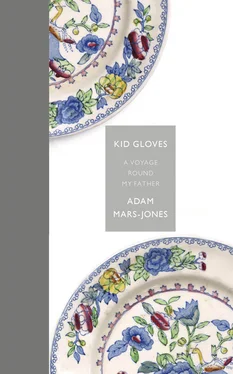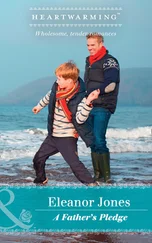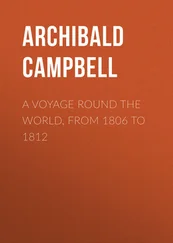Mike’s design solution was to devise a shrine-like space, in the shape of two half-circles, so as to offer visitors a sense of being shielded, though the memorial is open to the sky. On one side the gap between the half-circles is interrupted by columns taller than the walls, not supporting anything but providing the visual rhetoric of a gateway, flanked by free-standing decorative buttresses. There’s a central flagpole. The panels listing the dead, in alphabetical order of home town but also giving their ages and the relevant branch of the service, are hung on the outside walls.
The outside of the memorial gives you the statistics, and the inside tries to render the experience. Reliefs on the curved inside walls show servicemen in combat and off duty, as well as planes, ships and aircraft carriers. There are five bronze figures on the site, four of them attached to the walls. The fifth is of a young soldier sitting at the foot of the flagpole. The intention is to produce a double-take effect on someone visiting the memorial alone, and thinking for a moment that there is someone already there. This fifth serviceman is bare-armed. He rests his rifle (an M16) against his leg, holding it steady with his left hand, while in the other he holds a handwritten letter from his parents. You can read it over his shoulder.
The judges of the competition must have been overjoyed when they found that the winning design was actually submitted by a veteran. It was a gift in terms of public relations. Mike had certainly paid his dues, seeing Apocalypse Now again and again during its first run, gravitating towards his fellow vets where they had established themselves at the back of the movie theatre with their booze and their joints, hunkering down in the foxhole of shared dope and shared damage.
In time Mike was frustrated by the bureaucratic aspects of realizing his memorial design, particularly when corners were cut. He had specified an infinitesimal gradient for the floor of the memorial, to make sure that water ran off. This was omitted, as a cost-cutting measure, and on the grounds that it never rained in Sacramento (in whose State Capitol Park it was erected). Mike knew better, and realized that in some seasons there would be puddling. He didn’t attend the opening and has never visited, as far as I know, though he does have the consolation of being able to see it in the background of the local TV news every Veterans Day.
There’s a debate that never seems to die down about whether there’s such a thing as a gay sensibility. If being a veteran presumably affected Mike’s ideas for the memorial, did his being gay also make a contribution? It’s hard to come up with a definite answer. Is there gay input in his memorial? Just possibly. If you reach inside the young soldier’s flak jacket (not that you would), you’ll find that his nipples have been moulded.
After three years spent very happily in Virginia, and with a book soon to be published, I had the benefit of a new interpretation of my personality by Dad, but I was still living at home. Why not? I was two hundred yards from a Tube station, but Gray’s Inn was quiet in the evenings and more or less deserted at weekends. I could walk to the West End on a Monday evening and get tickets to see a play. What were the advantages of setting up on my own, even if I could afford it on the £600 advance Lantern Lecture brought me? I was ahead of my time. Nowadays it’s standard for people to wait a good long time before they can get established on the property ladder, but in those days the lower rungs were pretty access-ible and it took some fancy rhetorical manoeuvring to make my choices look anything other than lazy and infantilized. Snow might fall on my bed, thanks to the rusty skylight, but I doubt if anyone was really fooled by my charade of starving-writer-in-a-garret. I wasn’t even sure I was a writer. I had convinced a few other people but not myself. Lantern Lecture was ‘well received’ but I had no idea what to do next.
I had written my first book review, of Edmund White’s States of Desire , while still in Charlottesville, for Craig Raine’s Quarto — I remember sitting in the Howard Johnson’s on West Main Street to write and rewrite my piece. Happy days! It would take me about five years of literary journalism in print and on the radio to start earning a living. My lowly status was partly disguised by my being so conveniently located, only a short walk from the Sunday Times on Gray’s Inn Road, where Claire Tomalin would let me root through the book cupboard for lateral assignments, and from the TLS in Clerkenwell. Physical proximity was much more important in those days before e-mail.
It was only the anomaly of a new and serious-minded broadsheet newspaper (the Independent ) being set up, with an arts editor, Tom Sutcliffe, whose address book was full of radio names rather than hacks as such, that edged me into solvency. It was an unlikely combination of events, a shower of frogs coinciding with a blue moon.
In the meantime I was an adult with an eccentric portfolio of privileges and restrictions. If Dad had been a bed and breakfast, he would certainly not have advertised himself as gay-friendly. Limits to behaviour weren’t spelled out, and of course there was more potential leeway when Dad was on circuit. Even so, it was clear that a new face wouldn’t be welcome at breakfast, unless possibly it belonged to Camilla Parker-Bowles. Now there’s a lady who can wear a hyphen!
However little time Dad and I actually spent in the flat together, it’s perfectly obvious that one of us (at least) was compromising his principles, and naturally I’d rather think it was him.
Did I want to invite someone into the flat for the purposes of pleasure, someone who might murder my mother or make off with the Investiture chairs? Well of course I did. Yet the situation suited me well, even in the aspects that seemed to chafe the most. I imagined I was looking for a relationship but didn’t actually establish one. Certainly the partners I pursued were self-disqualifying by reason of unavailability. If they weren’t ruled out by reason of a previous commitment then it was a matter of distance, whether geographically or emotionally expressed.
I wasn’t a fully paid-up non-committer. I was really just stringing committophobia along. I kept it dangling, never quite saying in so many words that I didn’t see us having a future.
As far as I could see, my brothers weren’t in any great rush to settle down either, and perhaps I can hide my particular pathology behind wider patterns in the family.
I remember one idyllic picnic on the flat roof of the Gray’s Inn flat, where Mum used to sunbathe. I hauled food, plates and cutlery for a romantic lunch up the vertical metal ladder which provided access, using the carrier-bag-on-a-rope system she had devised to convey her sun cream and chosen book. From this distance it seems jarring to be calling her ‘Mum’, but it can’t really be avoided, Mum being what I called her at the time.
At the end of our rooftop meal, my date delivered what may have been the tenderest, warmest speech of romantic severance ever made. He had been having a very nice time, he said, and there were many ways in which I was wonderful, but he was looking for a lover of his own age.
It took a moment for this to sink in. ‘Tony,’ I asked, ‘how old do you think I am?’ The age difference between us was about eighteen months. Even in a highly competitive gay market I didn’t qualify as a dinosaur or even a coelacanth, the ‘living fossil’ that turned up to everyone’s surprise in a fisherman’s net in 1938.
I told myself that being a Published Author conferred a gravitas which might be mistaken for seniority of the flesh, and so this comment wasn’t the vote of no confidence in my grooming regime it might seem to be. I’ve never tired of reminding Tony of his micro-gaffe, not when Keith and I attended the party to celebrate his civil ceremony with George, nor when the two of them came to celebrate ours in 2008.
Читать дальше












